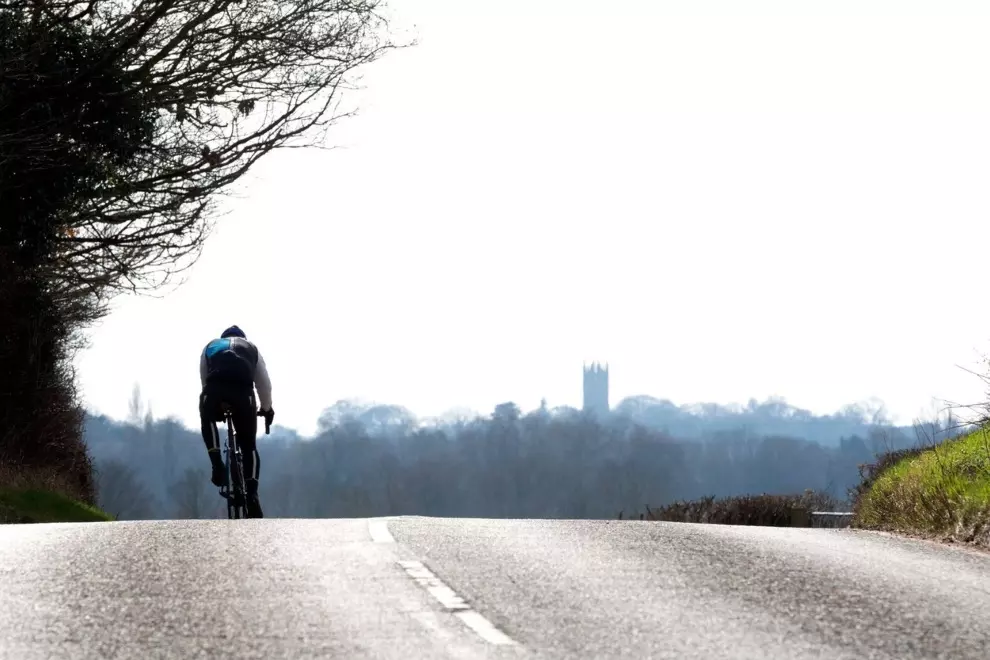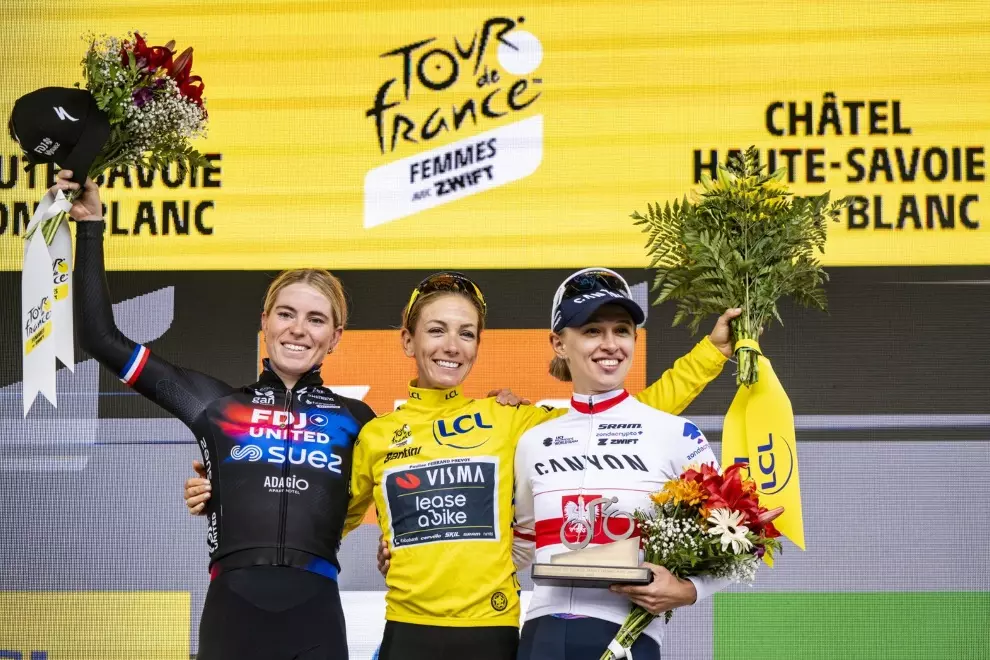When last year’s Tour winner broke away from the rest of the peloton on the Côte de Thésy, the last climb of stage 5 (3.7km at 8.1%), only Richard Carapaz (EF Education-EasyPost) attempted to stay with him, but he was dropped almost immediately. And there were no serious counterattacks, as if all of Vingegaard’s rivals had agreed before the race that they had no chance and would simply fight it out for the remaining podium places.
Vingegaard’s dominance over the likes of Carapaz, Adam Yates (UAE Team Emirates), Julian Alaphilippe (Soudal–Quick-Step), Ben O’Connor (AG2R Citroën), Egan Bernal (Ineos Grenadiers) and Mikel Landa (Movistar) was imperial. He won stage 5 by 31 seconds, to take the leader’s yellow jersey from fellow Dane Mikkel Bjerg (UAE Team Emirates). He then won stage 7 in similar dominant style, beating Yates into second place by 41 seconds, with Jai Hindley finishing third, at 53 seconds. His final margin over Yates in the GC was 2min 23sec, a very large gap for an eight-day race and the largest victory margins for the Dauphiné since 1993. O’Connor came in third, 2min 56sec behind the winner. “When [Vingegaard] went on his sprint attack, I found it really hard to follow,” Yates said after stage 7. “I tried to go at my own pace, but it wasn’t enough.”
The win was Vingegaard’s 11th of the season and Jumbo-Visma’s 35th victory of 2023. It underscored Vingegaard’s status as favourite for this year’s Tour, with only Pogačar, who has not raced since breaking his wrist in a crash in this year’s Liège-Bastogne-Liège, considered a serious rival. But this Dauphiné wasn’t merely an overwhelming rider success; it was also a collective Jumbo-Visma triumph. Frenchman Christophe Laporte won two sprint victories as well as the green jersey, which meant that the Dutch team won four of the eight stages and two of the four jerseys.
It was also a good race for the home nation, France, with Laporte’s two stage victories and another stage win chalked up by Alaphilippe. That was the two-time world champion’s first World Tour win since April 2022, when he was seriously injured after crashing into a tree at high speed during the Liège-Bastogne-Liège. It remains to be seen if this will be enough to convince Soudal–Quick-Step boss Patrick Lafevere to select the 31-year-old Frenchman for the Tour.
But it wasn’t all sugar and cream for Vingegaard and Jumbo-Visma. The Dane was beaten by compatriot Bjerg in the time trial, which he and the team had set out to win. Far more serious was the crash in stage 2 in which the team’s important domestique Steven Kruijswijk broke a collarbone and fractured his pelvis, and so will not be able to ride in support of Vingegaard in the Tour. Yates’s excellent performance could also be regarded as a warning for Jumbo-Visma, for the 30-year-old British rider will be riding in support of Pogačar in the mountains of the Tour and looks to be in great form.
While the Dauphiné is an important part of the build-up to the Tour and is often examined for clues to a possible outcome in that race, it’s easy to exaggerate its results. Vingegaard is clearly in great form, but one shouldn’t read too much into the performance of his GC rivals, whose primary interest in the race was to increase their fitness without leaving too much energy on the road. But Vingegaard still had many reasons to be delighted. “It’s of course very big for me to win this race,” he told Eurosport. “It’s one of the biggest races in the world, so of course I’m very happy to win. And the team did amazing today, they were super-strong and I was never alone. I can be very satisfied with this week.”
The 110th edition of the Tour de France kicks off July 1 in the Spanish city of Bilbao.




